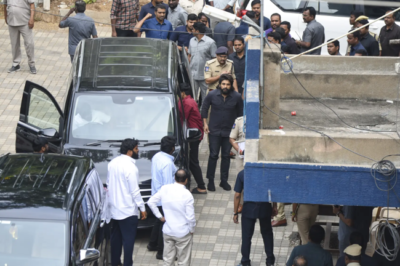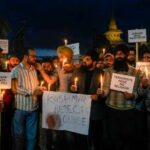
- Two Bangladeshi diplomats in India have been asked to leave, days after the diplomatic passport of ousted Prime Minister Sheikh Hasina was revoked.
- This move comes amid political turmoil in Bangladesh, with the caretaker government, led by Nobel laureate Muhammad Yunus, tightening control.
- Hasina, currently in India, faces potential extradition, leaving her in a precarious situation as the diplomatic crisis unfolds.
Why were Bangladeshi diplomats expelled, and what does it mean for Sheikh Hasina?
In a surprising turn of events, two Bangladeshi diplomats stationed in India have been asked to leave before the end of their contracts. Shaban Mahmud, the First Secretary (Press) at the Bangladesh High Commission in New Delhi, and Ranjan Sen, serving in a similar capacity at the Bangladeshi Consulate in Kolkata, were relieved of their duties on August 24 by the caretaker government in Bangladesh. This decision comes just days after the diplomatic passport of ousted Prime Minister Sheikh Hasina was revoked, raising serious questions about her future in India.
Sheikh Hasina, who was forced to resign on August 5 following widespread protests and violence in Bangladesh, now faces the possibility of extradition. The caretaker government, led by Nobel laureate Muhammad Yunus, has taken a hardline stance, revoking diplomatic passports of Hasina and other former top officials. The revocation not only strips them of diplomatic immunity but also leaves them in a vulnerable position, especially as they navigate their next steps in a rapidly changing political landscape.
What are the implications of Hasina’s potential extradition?
The situation for Sheikh Hasina is precarious. With her diplomatic passport revoked, she may soon be compelled to apply for a standard passport, a process that will require clearance from two security agencies, as per the new rules set by Bangladesh’s interim government. This bureaucratic hurdle could delay or even prevent her return to Bangladesh, leaving her in a state of diplomatic limbo in India, where she has been residing for the past three weeks.
The expulsion of the two Bangladeshi diplomats adds another layer of complexity to this unfolding drama. Their abrupt removal suggests that the caretaker government is not only consolidating power but is also keen to remove any remnants of Hasina’s influence from key diplomatic posts. For India, this situation poses a diplomatic challenge as it navigates its relationship with the new government in Bangladesh while dealing with the sensitive issue of Hasina’s potential extradition.
Conclusion: What lies ahead for Sheikh Hasina and Bangladesh?
As Sheikh Hasina faces an uncertain future in India, the political landscape in Bangladesh remains tense. The caretaker government’s actions indicate a decisive break from the past, with former officials, including Hasina, losing their privileges and potentially facing legal and diplomatic battles ahead. For India, balancing its diplomatic ties with the new Bangladeshi leadership while addressing the issue of Hasina’s presence on its soil will be crucial.
The next few weeks will be critical in determining whether Hasina will be extradited or find another solution to her predicament. Meanwhile, the removal of Bangladeshi diplomats from India highlights the broader implications of this power shift in Dhaka, signaling a new chapter in the region’s political dynamics.




































Leave a Reply